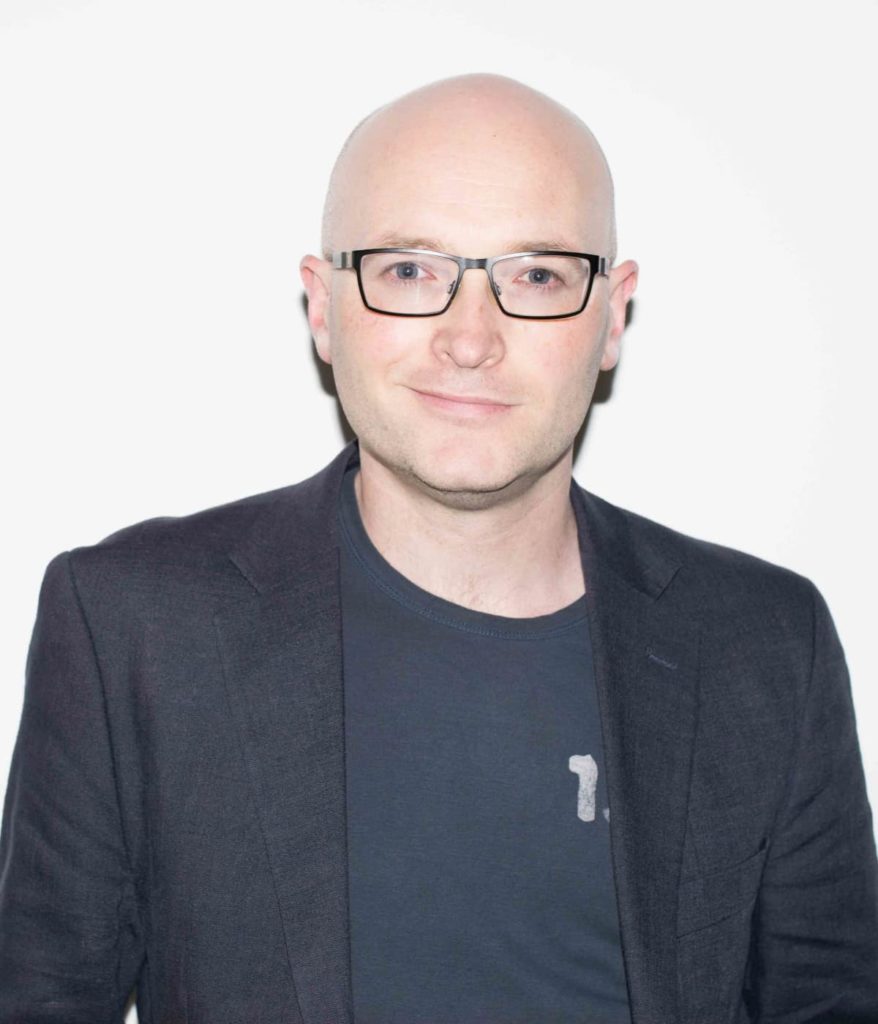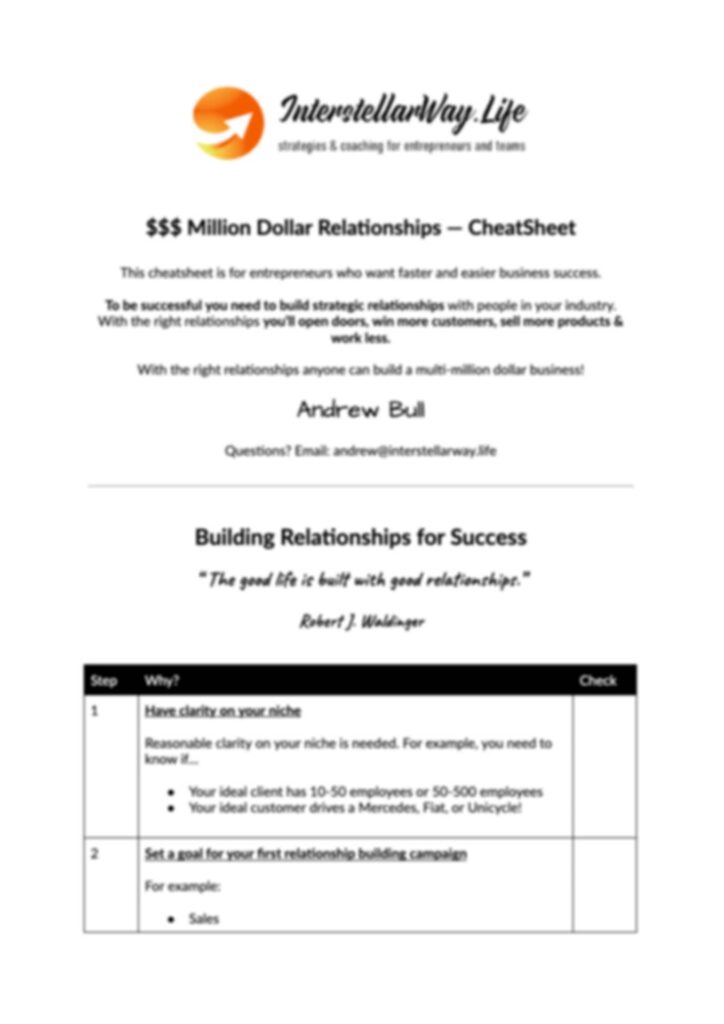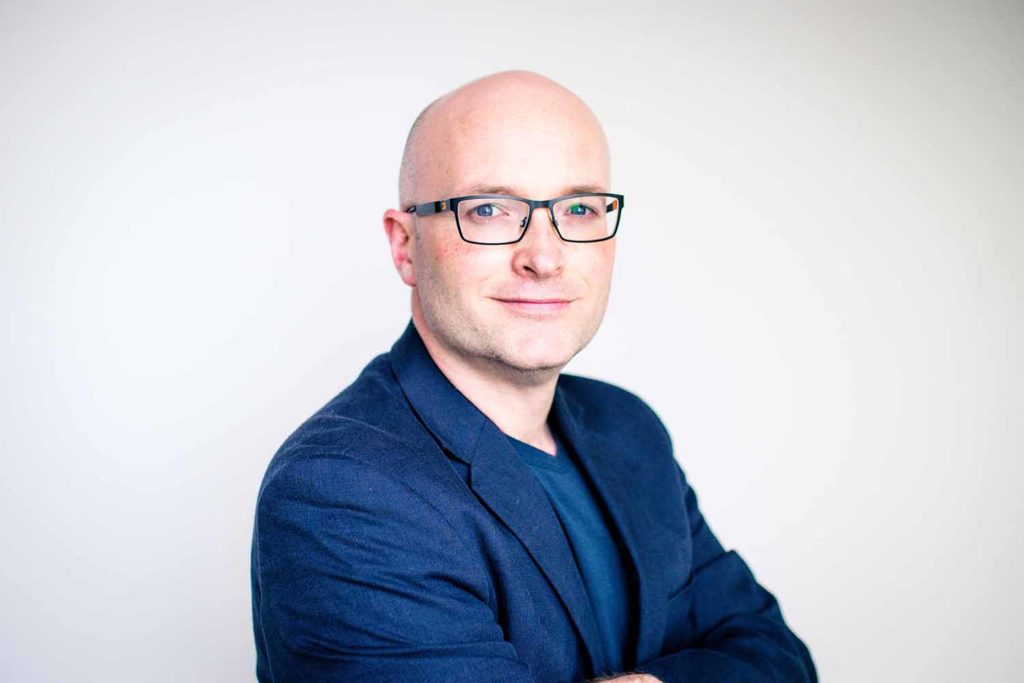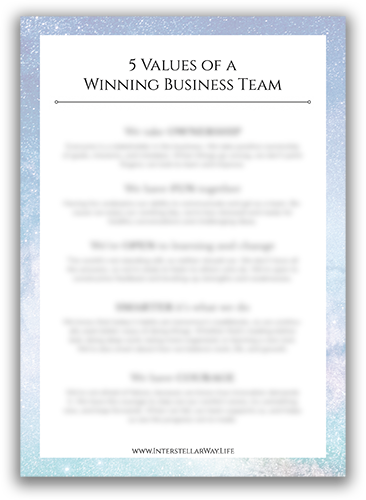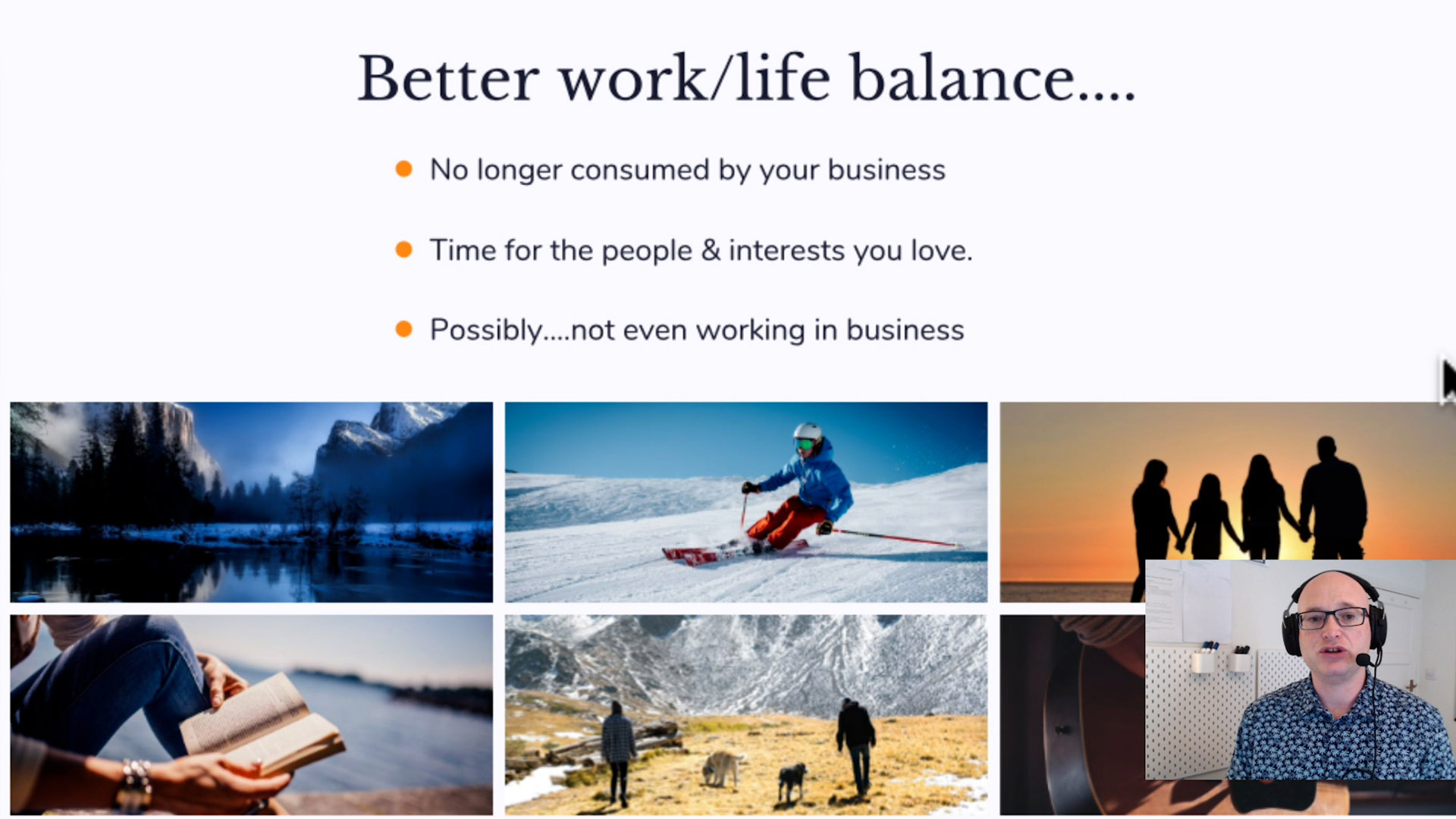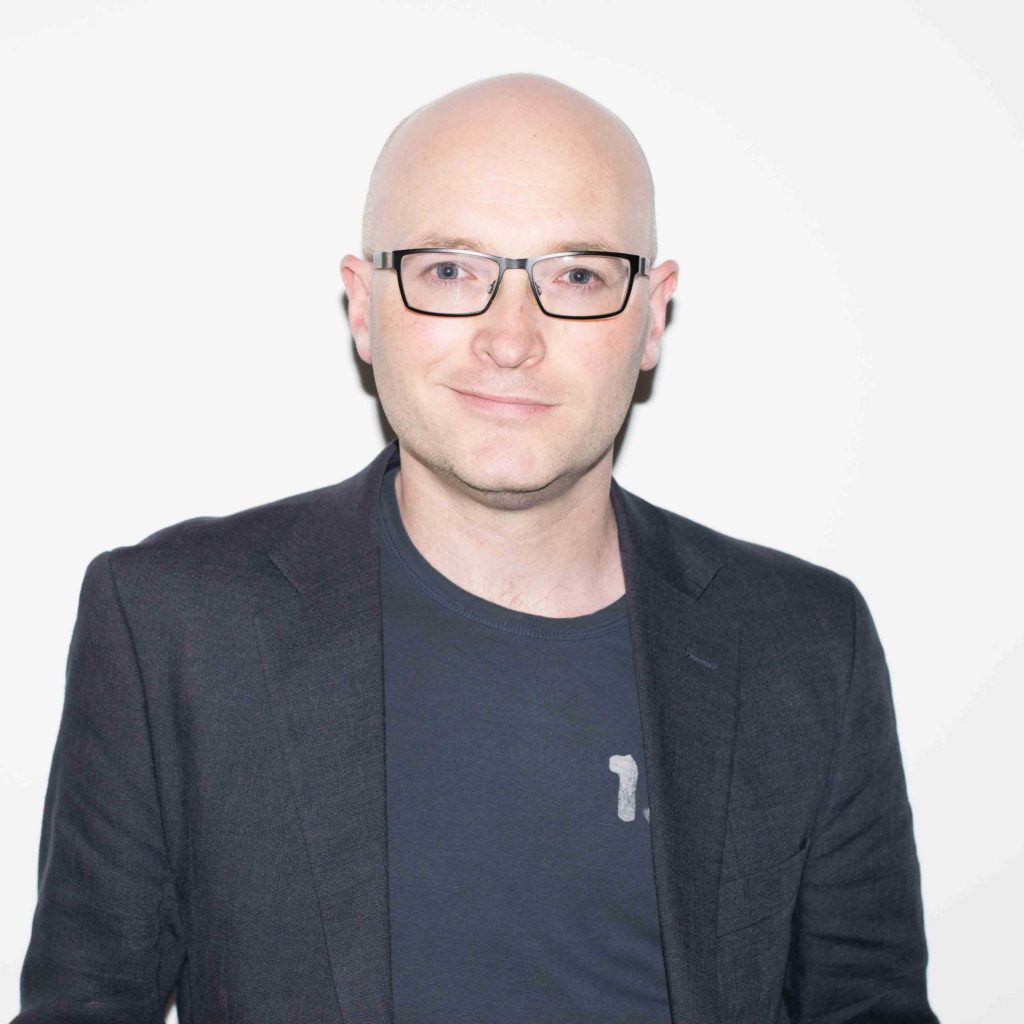Interstellar Business Show
Podcast for Technology CEOs and their teams.
It's time to grow your mind, elevate performance, and own your future 🚀
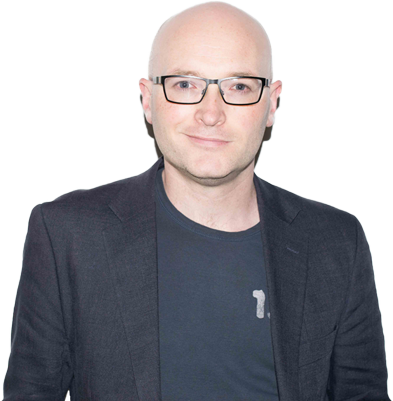
Interstellar Business Show
Episode: 0020
Contrarian Marketing: Nicolas Verweyen on Getting Decision Maker Attention
Featuring....
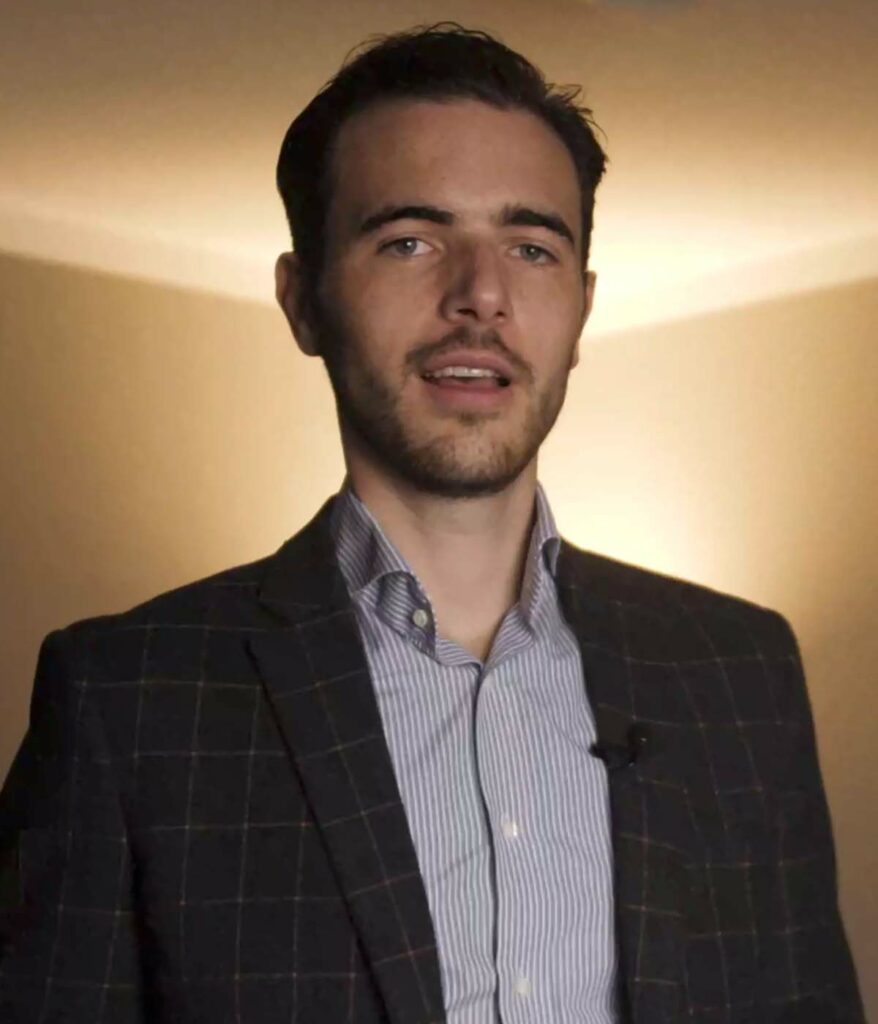
Episode Introduction
Are you struggling to reach decision makers? Are your adverts and social posts failing to cut through?
If “YES”, you’ll want to listen to this week’s show….
This week, Nicolas Verweyen shares a contrarian marketing tactic that works. A technique your rivals aren’t using. An approach that gets you in front of busy decision makers.
Nicolas Verweyen is the Founder of VerDigital.
Episode notes & resources
Love this episode? Please leave a review here
Listen to more episodes here: Interstellar.Show
Get Andrew’s free Resources for Tech companies with teams → https://bit.ly/2Ygyoij
Join Andrew’s Interstellar Community → https://interstellarway.life/sign-up-for-newsletter/
More about Nicolas Verweyen…
Follow Nicolas on Linkedin: https://www.linkedin.com/in/nicolas-verweyen/
Check out VerDigital’s website: https://verdigital.eu/
Transcript
Please note, this transcription is autogenerated, so there may be errors.
[00:00:00]
Andrew Bull: welcome to the interstellar business show. My name is Andrew bull and I’ll be your host and guide on this journey of growing, working, and living smarter. In today’s episode, you’ll discover an unconventional approach to marketing that works and that your rivals aren’t using this is a great opportunity to stand out in your marketplace.
Plus on today’s show, you’ll get actionable steps for everything we talk about, and you’ll also learn how to generate leads on LinkedIn.
This show is especially for tech CEOs and their teams.
Each week I bring you the big ideas that will help you defy gravity and elevate performance.
Don’t forget to subscribe or follow us on whichever platform you’re listening on today.
And [00:01:00] if you’re feeling generous, please leave us a review on apple podcasts.
Right. Let’s meet this week’s guest.
Welcome Nicolas to the Interstellar Business show
Nicolas Verweyen: Thank you very much, Andrew. It’s a pleasure to be invited here.
Andrew Bull: Would you mind introducing yourself
Nicolas Verweyen: My name is Nicolas Verweyen and I’m based in Munich, Germany. What we’re doing at Ver Digital, this is my company. We are working together with consultants in the most cases, IT consultants and we’re helping them to scale up their business to scale up the operations. So we’re focusing on marketing, we’re focusing on sales, but also on topics such as mindset.
That’s what we’re doing here with a team of around five people. It’s a lot of fun.
Andrew Bull: Awesome. Let’s move on to our first topic of the show.
Have Courage
—
Andrew Bull: [00:02:00] Nicolas, what secret don’t people know about you?.
Nicolas Verweyen: My first job, I started working for my brother. My brother has a web design agency and SEO agency. And what we tried to do, when he hired me is, to get as many clients as possible, obviously.
I went there without a lot of experience in sales whatsoever. What I did is I picked up the phone and I called around 100 companies every single day. In the first day it didn’t work out very well. I hardly got a hundred people on the phone. Second day, same thing, third day, same thing, fast forward, three weeks down the line.
I wasn’t actually getting any opportunity out there. I had some people on the phone. I also was talking to them, but actually I had no idea what I was doing there. And the funny thing now is that I am a sales consultant now. I started from knowing basically nothing to going where I am right now.
That’s my secret.
Andrew Bull: What was the outcome of that story with [00:03:00] your brother’s company? Did you stay employed by the business?
Nicolas Verweyen: It’s my brother, so he can’t kick me out . So he moved me away from the sales position. He fired me from this role, but then sooner or later, he hired me again to help him with web design. That was basically the time when I started getting a little bit more into marketing.
Andrew Bull: Do you think that shaped your choices and approaches moving forward? Has that story enriched you in some way?
Nicolas Verweyen: Definitely. The experience that I made with all of this is that I focused on myself. I really wanted to sell websites. I really wanted to get those people on the phone without actually caring about what they are caring about. And without actually asking myself, what is it, the thing that those companies are trying to achieve, do they actually need websites?
Maybe you have an old website, but they don’t really care about that. I was very egoistic back then. And sales is completely the other way around. That’s what I’ve learned, then from this mistake and from all of these errors.
Andrew Bull: I’ve made this mistake as well, we [00:04:00] go out into the world looking to take and extract value all the time, rather than looking to give value. And actually it has the opposite effect for us, right?
Nicolas Verweyen: Yeah. And it’s not only in business that way. It’s in all parts of life, there are those kinds of people and we all know them. They are just trying to get something out of relationships and it’s not nice people to hang around with. And from my perspective, the reason why many sales people are not very popular.
And I want to change that.
Andrew Bull: I think that’s a very noble thought and mission. I think some of the reasons salespeople get stuck in that position, is you get stuck in the desperation loop, where you’re so desperate for the next sale, that you’re just that obcessive person who really wants a girlfriend or boyfriend and just eagerly chasing after them.
And that just pushes people away really. It has the opposite effect.
Nicolas Verweyen: It’s literally a downward spiral. The more you try, the less you’re getting.
Andrew Bull: Let’s jump forward into [00:05:00] our first major topic of the show, which is called
Growing Smarter
—
Andrew Bull: Nicolas, what is this big or controversial idea that you’ve got to share with us?
Nicolas Verweyen: So what I see people doing is they’re copying everything that they see. I’m for example, very active on LinkedIn and whenever I’m on LinkedIn, I see lots of people doing similar things on there. Like for example, posting polls where they can ask people different questions and so on.
And what happens is this stuff works quite well. Then everyone else is copying them. Then they’re sad or unhappy about the results because they’re not getting the same results as everyone else. the approach that I’m taking is to do things a little bit differently.
For example, if you are trying to[00:06:00] go against the competition in the online world, maybe it’s time to think about, how can I do things completely differently? How can I go back from the online world to the offline world?
And instead of trying to get into contact with people through social media, I do the old school way of, for example, sending out physical post.
For example. When was the last time I’ve received a physical letter from anyone trying to get in contact with me or trying to deliver something to me? I literally got one letter or so in the last year and this one letter, it stays on my mind. What I’m saying is, you should try things a little bit differently, for example, through sending out letters again.
Andrew Bull: So in the past, I’ve received mail from finance companies, trying to offer loans and this kind of thing. And they try and disguise it in a way that you think is a personal letter. And to be honest, those kinds of letters end up in the bin.
So what should companies be sending out? So they get the right kind of attention.[00:07:00]
Nicolas Verweyen: First of all, It has to work for every single company. When I’m giving any tips out here, it doesn’t mean that you should do it exactly like that. But for example, a letter that we sent out with a client was quite controversial letter. So for example, those kinds of letters people are sending out when they’re trying to stay anonymous.
You’re cutting out from the newspaper, different letters. You’re putting them together. And in total it’s says a message. When you’re getting a message like that, it’s quite controversial. "What’s happening here? I’m getting a message. It sounds like someone wants to get something from you"
Then for example, like what we’ve done, turned the page to learn more. They turned the page and then they got some information. They actually got value from this letter. Then we have the attention and we’re using the attention properly.
What I’m saying is, you should do the things differently. For example, if you’re sending out letters for business loans, then you shouldn’t send out the [00:08:00] same letters as every loan company is sending out there right now, you should do something different.
For example, put something in the letter that gets the attention from those people.
Andrew Bull: So you want to be the purple cow as Seth Godin would say. So make sure you stand out in your market and are different from everyone else. If the traditional thing in your market is to send really square, formal letters to people, then maybe you can stand out by putting some emojis in your letter, perhaps?
Nicolas Verweyen: Perhaps. There is this social platform Tik Tok. I’ve seen many banks like financial institutions. The employees of those financial institutions. They started to dance on Tik Tok, I don’t want to see financial people dance on Tik Tok.
It just doesn’t work. If you’re in a very serious business and you’re sending out emojis, maybe that’s also not the right thing. But for example, talking about the financial industry example, I’ve heard people [00:09:00] sending out a block of old paper, which used to be like money bills. And they’ve put that together.
It was like in total 1 million of old money, and they send it out and they said, you want to get the next million, you should get in contact with us .
You always have to have this kind of creative idea that is different from things that people have seen before, and then you’re getting the attention.
Andrew Bull: Think outside the box a little bit. I suppose if you’re sending something that physical, it really is going to make someone take notice, because you can’t just put it away somewhere . You can’t just shuffle it to the side.
It’s so big and meaty. You’ve got to deal with it.
Nicolas Verweyen: Exactly. And I’ll give you another example. You don’t even have to do things so differently and so controversial. One thing we’ve also done is just sent out a very high quality booklet, of a company that is selling renderings [00:10:00] for real estate companies. And just by sending out those high quality booklets, and they actually looked like a proper book and we’ve sent it to companies around Germany.
So German culture is you would never throw away a high quality book. What are you doing instead? You have it right next to you on the table, if you’re getting it via post, at least for two weeks or three weeks or so on. If the company is calling those companies a couple of days after they’ve received it, and they’re saying something like, Hey, this is X, Y, Z from company X, Y, Z.
Then the person is like hearing the word okay, wait a second. I have to book from the person who’s just calling right next to me. This already is helping people who have, for example, cold calling to actually get into conversations. And so it does not need to be that controversial. It doesn’t need to be like in somehow funny or completely different from everyone else.
You just have to do it the right way.
Andrew Bull: One of the challenges that comes to my mind is now the [00:11:00] issues around GDPR. Is a lot of people are working from home these days. How do you get stuff to them?
Nicolas Verweyen: Yeah, that is definitely a problem sometimes. If you are, for example, targeting decision makers, they are in the most cases, still getting their posts, even if you’re sending it to the headquarters or to their office. We’ve tried it and the time to get the post to those people is taking a little bit longer, but they’re still getting it.
Not everyone, but most of them.
Andrew Bull: Do you end up with any inbound responses off the back of this mailing out?
Nicolas Verweyen: It happens. But that’s not our goal in the first place. Our goal in the first place is to get their attention and to get them to know us, so that we can then afterwards, for example, give them a call, and they know who’s calling, and we’re not like cold calling anymore, but it’s more a warm call of [00:12:00] someone that already has something from us.
They have already received value from us.
Andrew Bull: It’s great to put that value in upfront as we’ve already been discussing, because it makes such a difference to people. So how can CEOs take first easy steps with this idea? What should they look at doing?
Nicolas Verweyen: If you’re thinking that’s too much stress to actually create those letters or to create those high quality booklets or whatever. There is also a easy way to do this. You can go on the internet. You can install a free software, which is called Loom.
Which is a screen recording software. You can screen record yourself while you’re on the website of the other person, talking about the different things that you’ve seen, that for example, they could improve if you are working in web design, or if you’re working in SEO also send it to those people.
And then they’re watching that you can even get like notification from this software. If this video has been watched and then you’re giving them the call, which allows you to [00:13:00] have a conversation with someone who already has seen you personally, who has already seen you talking. And they basically know who’s calling, which is a great advantage over everyone else.
Who’s unfamiliar for them.
Andrew Bull: That’s a fantastic way of breaking down the barriers and turning a cold call into a slightly warmer ca ll. I love that idea. Yeah.
Nicolas Verweyen: This is only one way. If you, for example, have this recording and it works for you, then I’ve also seen people sending out very small and cheap video booklets. They’re like booklets, you are opening, and then inside there’s a little screen and this little screen also shows a video.
I have received something like that recently. And like I’m definitely keeping that in my mind that this is also working.
Andrew Bull: That’s so innovative. How does your business help CEO’s action this idea?
Nicolas Verweyen: What we’re doing is coming up with the ideas. Okay. Coming up with the ideas of actually sending out [00:14:00] something like that, but obviously we’re not only sending out post and so on. In many cases, it’s just way easier to do it via digital marketing.
We have to identify what kind of people do we actually want to reach? What kind of problem do we actually want to solve for those people? What kind of value do you want to deliver? And that’s something that we are together doing with them.
Next to that also training the staff, to do the calls afterwards, to be good in sales, to actually close the contracts. Because the worst thing is to do marketing and then not using the leads or the opportunities that you generate from them.
Andrew Bull: Yeah, the follow-through that’s where the gold is, right?
Nicolas Verweyen: Exactly. That’s where all the gold. is Probably only a single digit percentage of people will actually get back to you when you’re sending out something like that. But you can expand maximize the influence or the output of such actions by actually going [00:15:00] into contact with those people directly.
Andrew Bull: It takes discipline to do it, not everyone’s got that discipline. It’s like getting really muscly at the gym. You’ve got to do a hundred pushups a day if you want to do it.
Nicolas Verweyen: From my perspective, I think obviously if you’re going to the gym for the first time it’s always very hard, everything hurts and so on. But if you’re starting slowly doing a couple of pushups in the beginning, and then doing it over and over again, this is becoming a habit and whenever something is a habit, then you’re doing it automatically.
So it’s the same with sales, if you’re contacting five people every day, if you’re contacting even one person every day, that’s better than no person at all.
Andrew Bull: I think that’s so true getting a rhythm, when it comes to sales is really important, right? To get used to picking up that phone and reaching out to people. That’s why you need to have a proven p rocess like a chef in a kitchen. If you’re going to make the same five dishes every day, it’s much easier to do it again and again [00:16:00] and hone your craft.
Whereas if you’re scrabbling around wondering, is this really the right way to prepare steak or a soup? It’s it’s hard to master it and become a master of that particular art form. So we need to hone down what we’re doing. And then we can practice that thing over and over again.
Nicolas Verweyen: That’s a very good example. And the chef, he will also screw up some of his steaks, but at least some will taste very well. And that’s the same with sales. When you started your podcast, probably it was also very new for you. And now you’re like this professional who has set up everything very well.
I can tell you, Andrew is doing a very good job with everything here. In the beginning, you first had to get this process yourself, right?
Andrew Bull: Oh, totally. Yeah. And I’m still screwing up now but the mistakes are smaller or different, but things are getting better and the results are getting better. Yeah, you’re right. It just comes from practicing and doing it over and over again.
Nicolas Verweyen: I think so too.
Andrew Bull: All right. Great. Let’s jump forward into our next topic of the show
Working Smarter
—
Andrew Bull: [00:17:00] This week, Nicholas is going to share an idea around LinkedIn.
What hack can you share with us about LinkedIn?
Nicolas Verweyen: We are using LinkedIn also for our own purposes to get in contact with our target audience. And one tool that works very well is the sales navigator. With the sales navigator, it allows you to filter through the whole database of LinkedIn. For example, if you’re looking for CEOs or decision-makers in one specific industry and they all have two years of experience in the field and they’re working for companies of 200 employees in size, you can find them on there, [00:18:00] which is very great.
And now think about this. If you are able to filter out the people with this much precision, you can also get value to those people very specifically for example, if you are finding people in one specific field, one specific demographic and so on, you can already see that most of them are probably struggling with one specific thing or one specific problem.
And if you’re able to actually deliver something to them that works for them or that is interesting for them, LinkedIn will help you to find those people. Which is great.
Andrew Bull: That’s awesome. So for example, Maybe you could look for a product development officer who works for in a large scale business, who’s only been in place a year and is maybe still finding their way around. Maybe you’ve got a book or some resource that might help them with what they’re doing. Is this what you’re saying?
Nicolas Verweyen: Exactly. So a product development officer, he or she [00:19:00] is currently struggling with one specific thing. From your perspective, you, for example, talk to one product development officer a couple of weeks ago and realized that many of those people are having one specific thing and with your product, you can actually solve that issue.
So what you can do as a next step, is you can actually get in contact with those people. We all know this situation where you’re getting pitched directly on LinkedIn, it’s all over the place. But if you are actually genuinely interested in the situation of this person and getting into conversations with them, and then when you have started a conversation, you can also move to conversation off from LinkedIn and actually give them a call similar to our example with the direct mail.
This is a very great channel for you to use. And also then afterwards teach to your sales team if you have one.
Andrew Bull: I suppose if you sent one of you out as the advance party to work on this unique angle or new [00:20:00] approach to targeting certain people in a certain role in a certain kind of business. And you nail that, then did your rest of your team can follow on behind and duplicate that process.
Nicolas Verweyen: Exactly. And the beautiful thing on LinkedIn is you connect with people. And for example, you can then very easily. Give value to those people at scale, by for example, say posting a instruction for doing something in particular that is relevant for your target audience. And then many people are actually liking that many people are commenting, for example, which again gives you an opportunity to get in contact with them.
To start conversations with them, to start talking with them. And that works very well. Like we are using that. Our target audience is consultants. I’m getting in touch with consultants every single day. Thanks to that. And talking to them, understanding what their problems are, and then also offering solutions to them.
And this is something that everyone can do.
Andrew Bull: So it’s using a targeted resource upfront [00:21:00] and providing that as a free resource for your potential client to warm them up. And get them ready to move into hopefully that conversation. But I suppose if we’re coming at this from a value positive perspective, then really you first of all focus on delivering the value upfront and don’t always have in the back of your mind, the sale.
Even though, to some degree you will do. But I think if it’s always there, and if it’s behind you, like some monster right over your shoulder, it could affect your behavior and how you respond to that person. I think if you get it right then things just organically flow into the sales conversation.
Nicolas Verweyen: I think that’s a very interesting point that you’re mentioning
You said for example, like this monster behind you, which is changing the way you’re interacting with the person, but I actually see it a little bit differently. I think you can only truly help people if they become your client.
You can still give people tips and [00:22:00] so on, but how can you actually make sure that they are executing on it? That they are getting the results you could help them get if they become your clients. So I actually think that this is the first step of getting in contact with them, of moving them towards becoming your clients so that you can then actually really deliver them the best value ever.
And I think whoever is running a business, whoever has a product, whoever is selling something should also In the position of, okay. What I have to offer is very valuable and I want to give this to people because that’s why I’m doing that in the first place. Isn’t it?
Andrew Bull: Yeah, totally. That should be the end goal that your final product has so much value in it. You’re desperate to connect people with that value. And I agree that in many ways we do have to bring people into our business to hold them accountable and help them get the results that they need to get.
Because otherwise people sometimes just don’t take action on [00:23:00] things.
And this is part of the problem with giving stuff away for free in a way as well. I like giving stuff away for free because it’s good to give value upfront to people. But I also think sometimes it’s not actually helping the person when you’re doing that, because then they don’t value the thing that you give to them.
Nicolas Verweyen: That’s often the problem, and that is true. And because whatever the price tag says, that’s also what the value is in the end. And if the price tag is zero, then in many cases, the value is also very low. So this is a problem in itself. When you’re giving something out for free. I think if you’re giving something out for free, it should always just be a little taste of how it feels to really be a client.
Andrew Bull: Yeah. Otherwise you possibly train people to not value what you’re delivering.
Nicolas Verweyen: Yeah. Or at least minimize the value that you actually stand for because you’re giving out everything for free. And in the service based industry, which we are [00:24:00] both in, for example, it is very hard to give like a feeling of the value, right?
If you, for example, have a car dealership, you can just send people in the car and say, go for a ride. And when you’re done, what the car feels and so on. But if you’re like doing some kind of services, it’s always a little bit more challenging. Still you have to give value up front. You still have to solve small problems to then give them a feeling of how it feels like.
How you could help them with a big problem for yourself or with a big benefit that you give at the end.
Andrew Bull: I think a great analogy for this is dating. And thinking about how one must go through courtship in small steps to get to a good marriage. And I think it’s very rare that you go from just meeting to marriage straight away, because most people would find that a bit awkward and say, no, quite rightly, at the same time, you don’t want to take maybe 30 years to [00:25:00] get married because things could go cold and the other person could find someone else. So you need to find a right pace for developing the relationship and your products are obviously part of that journey and asking people for more and more commitment as you go really. And I think that whole dance of how that works with leveling up the commitment, levelling up people to pay more, just has to be done in the right way. We’ve what we call splinter products and fragments of what you offer.
Nicolas Verweyen: I totally agree with you. You like the comparison with the marriage is very true compared to the client who is just starting out as a leads and then actually becoming a client. So it definitely makes a ton of sense. And many people don’t really have this understanding that there is this journey that the person has to go through.
For example, they’re trying to sell to someone right from the start. At any price and maybe they then [00:26:00] end up in a relationship with this client or this person becoming their client. And then they realize actually that’s not the right client. It’s also in both sides that you actually have to find out whether this partnership is beneficially mutual for both of them.
Andrew Bull: That’s where having some taste of products, which are a bit more affordable and accessible is a good thing as well, because you get to see if the fit is right .
Nicolas Verweyen: And additionally to that also really understanding clearly who your client is and who not.
Andrew Bull: How can CEOs take action with this idea? How can they start reaching out via LinkedIn and connecting with these people that they need to?
Nicolas Verweyen: The first step obviously is to be very clear on what clients you want to get. Okay. So if it’s the chief product officer, then you really have to understand what kind of industry are they active in? What are they trying to do? What is the current situation and so on? So clarity is always the first step.
Afterwards, you [00:27:00] can just go on LinkedIn, get the sales navigator navigator. I think it’s like a 60, 70 bucks or so a month. And they have a test version of it. Just get it. Test it out. Find those people through the sales navigator. Then afterwards warm up with those people through, for example, direct messages through sending out something like the video am I described in the beginning, also sending out voice messages is possible.
Just try to be yourself and get in contact with those people. Just building up a relationship. As you’re doing with anyone else. Then also you have to make sure that you’re getting to the next stage of the relationship, for example, by giving them a call, for example, by sending them a message with asking them for a conversation between those two, for example.
And then if you have it working, if you’re already getting clients like that, then you can really scale up this approach by training your sales personal.
Andrew Bull: Those are wonderful steps to follow and [00:28:00] I’ll try and put those in the show notes as well. So don’t worry if you are having trouble following along with a pen and paper. I’ll put Nicholas’s notes in the show notes. You can find all the shows and the notes @ interstellar.show.
Be sure to go there and check out Nicholas’s resources that he’s going to share today.
Take Action
—
Andrew Bull: as well. Let’s move on to our next topic. What’s the big result that tech leaders can get if they action your big idea?
And if we recap what your big idea was, it was to not just do modern, digital, fancy buzzword marketing, like social media and Tik Tok and all this kind of thing.
It’s to do old school mailing of letters and packaging to people, but what’s the big result that people can get if they were to go [00:29:00] and do this conventional mailing?
They are getting the attention because it’s something different. It’s something everyone else is not doing right now. And if you’re actually implementing this and starting to gather experience and all this work starting to also then optimize the approach as much as possible.
You are basically able to get attention from the right kinds of people, any time at any state of the economy. And you’re also able to get sales. And then you’re able to give this towards the people that are working for you and they’re enjoying their work a lot more.
Nicolas Verweyen: They’re getting more results, more success. And it’s a win-win for everyone.
Andrew Bull: I like that idea of helping people gain competency in what they do as well. And I think that’s a really under estimated thing that makes us feel valuable and validates us, as people. And it can be quite frustrating when we’ve got this great product, [00:30:00] but we can’t sell it, or noone’s turning up to use it.
What are the big takeaways you want tech leaders to remember about your big idea?
Nicolas Verweyen: First of all, don’t try to serve everyone in the market, be very clear on who you want to help.
The next step is that these few people actually know what you’re doing, for example, getting their attention through some direct mail campaigns .
In the first instance, in many cases, doesn’t even really matter if they like what they see. They only need to see. They only need to get attention. And then afterwards you can build up the relationship in a better way. And then finally, if you’re not able to close the contracts, then you’re also not able to help those people. So you should move them towards a collaboration, let’s get them as a client.
If there is one thing the tech leader is taking from this, you should start with this. You are leading the business. You are the person that people are looking up to, and if you’re leading with a good example, [00:31:00] other people will also follow you.
There’s nothing to wait for. You should start immediately.
Andrew Bull: so you need to be the role model for your team.
Nicolas Verweyen: Exactly.
So if people want your help to get this big result. Where can they go and learn more?
Yeah, you can gladly get in contact with me on my website, for example, Ver Digital thought you okay. That’s VER and then digital dot EU or you can just check out my LinkedIn profile, for example Nicolas Verweyen.
Andrew Bull: Okay, fantastic. And there will be show notes available. So if you’re listening on apple podcasts, now, then please check out the show notes for today’s episode. You could also leave us a review there as well. You can head to interstellar.show, which is the podcast website. And you’ll find all Nicholas’s resources and contact details there as well.
I do recommend that you check out Nicolas and his website, because I think he’s got a lot of valuable insights to share. Nicolas, thanks for coming on the show [00:32:00] today.
Nicolas Verweyen: Thank you very much, Andrew. You’re an outstanding host. Thanks a lot for the opportunity.
Andrew Bull: You’re welcome. Speak soon..
Nicolas Verweyen: Speak soon.
Final Thoughts
—
Andrew Bull: Here’s what I learned in today’s episode. Lesson number one.
We need to think outside the box when it comes to marketing.
Sending attractive letters and parcels helps us gain the attention of the decision-makers our business needs. And it also keeps us top of mind because these physical objects, hang around.
And when you think about it, there’s so much noise and busy-ness when we switch on. Our laptops and devices. A physical message can break through that and connect us with the people we need. [00:33:00] Lesson number two. Sales teams need to focus on providing value for people instead of chasing after deals and leads. My question for you is this.
How is your business providing value? Before it guides leads into the sales process. Is it time to reevaluate? Your approach.
Thanks for listening today. Did you enjoy the show? If you did, I’d be grateful. If you could leave us a review on apple podcasts and let us know. How you found the show? Otherwise hit that subscribe or follow button. So you never miss an episode again.
All I’ve got left to say is thanks for being here. I’ll see you next time.
Have courage. Own your future. Take action.

